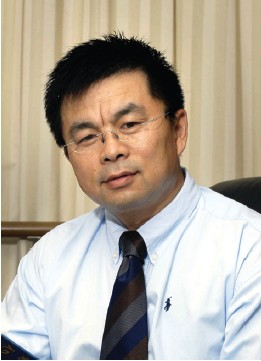Training as a surgeon: Not just knowledge and skills

Obviously, the training of a young surgeon requires the self-motivation. However, it’s an important fact that the encouragement, instructions, and guidance from the older generations are equally important to enable the young surgeons to become capable more quickly and take on more responsibilities.
I was often asked how to read a paper or book. “When you read a paper or a book, you should feel what the author felt, breathe what he breathed, and think in the way he thought.” Only by doing so, you can focus on the questions proposed by the authors, rather then just the answers or solution. In my opinion, the questions themselves are often more informative and critical than the newly elucidated theories or the newly introduced concepts.
Then comes another question: How to be a qualified surgeon? This question is of course more difficult. Everyone has own answers. First, a qualified surgeon must be an honest people. Confucius says, “Wisdom is knowing what we know and what we don’t know.” Every surgeon must maintain such clean and honest virtues. I always believe that the most honest individuals are smartest. Second, a qualified surgeon should be modest. Confucius also says, “If three walk together, at least one should be my teacher.” A young people, even if you have obtained an M.D. degree or became a surgeon, never think that you are superior to others. Keep a clear head, at any time. Third, respect others, especially your teachers. Respect is a two-way traffic. If someone wants to be respected they must also respect others. Finally, be tolerant. Tolerance is a required virtue. You should learn to forgive others of their shortcomings. Be open-minded and supportive, especially when you become the head of a clinical department or a senior doctor.
A qualified surgeon should also get certain achievements in scientific research. You should be well prepared for this goal. First, don’t waste your time, be diligent. Successful people often have two characteristics: talent and diligence. A “talented” individual is able to learn, understand, and utilize the knowledge and skills (e.g., surgical operations) in an extraordinary way. However, without hard work and repeated practice, the so-called “talent” cannot be fully exerted, and the final achievement can be low or even zero. Therefore, diligence is somehow more important. Fortunately, it can be fully controlled by your own brain and hands. The proper integration of talent and diligence guarantees the success of a surgeon in his/her scientific research. Second, develop a deep and wide knowledge base. The rotation system should be maintained in surgery residency training program. Young residents should not be trained within a fixed specialty immediately after they leave the college. The human body is an inseparable whole. Each disease, more or less, involves the whole body. Thus, young doctors must grasp of the basic theories, basic knowledge, and basic skills of health care activities. Only deep roots can give rise to flourishing leaves. Similarly, only solid and wide knowledge base can enable a doctor to carry out effective innovations. Third, keep thinking, keep innovation. During their career training, young doctors must ask them various questions from time to time, and then try their best to find a solution. This is particularly helpful for the training of independent thinking and innovation. Mr. Hsing-chih T’ao, a renowned 20th century Chinese educator and reformer, once wrote such a poem: “Two treasures with us lifelong remain: A pair of free hands and a great brain. He who does not use his hands belongs to the dethroned king’s band. He who does not use his brain has to endure hunger and pain. He who uses both his brain and hands can create a new world on exploited land.” Mr. T’ao used plain language to emphasize the importance of using both brain and hands, which is particularly important for a surgeon. Fourth, scientific research must be rigorous and evidence-based, and meanwhile pay attention to research ethics. The past decades have witnessed the rapid development of medical sciences in China. However, an impetuous and utilitarian social atmosphere also spreads and even deteriorates in scientific research. Medical researchers, especially the young generation, must resist these potentially disastrous phenomena. The proper style of study, which is always evidence-based and consistent with scientific ethics, must be advocated.
I have served as a surgeon for over 30 years. During this long period of time, I have deeply recognized the importance of writing, being a qualified surgeon, and carrying out scientific research in a scientific way. I sincerely hope that the young doctors will cherish the time, work hard, keep thinking, and thus be well prepared to be an excellent doctor and an outstanding researcher. Hope you will be a qualified surgeon, a good reader, an honest person, and a serious researcher. This has long been my motto and I wish to share it with all the young doctors.
Acknowledgements
Disclosure: The author declares no conflict of interest.


